Key takeaways:
- An open-source browser allows transparency and user control over privacy, contrasting with commercial browsers.
- Key benefits include rapid adaptation to user feedback and extensive customization options, enhancing the user experience.
- Popular open-source browsers like Firefox, Chromium, and Brave offer unique features and strong community support.
- Users often feel empowered and in control when customizing their browsing experience with open-source options.
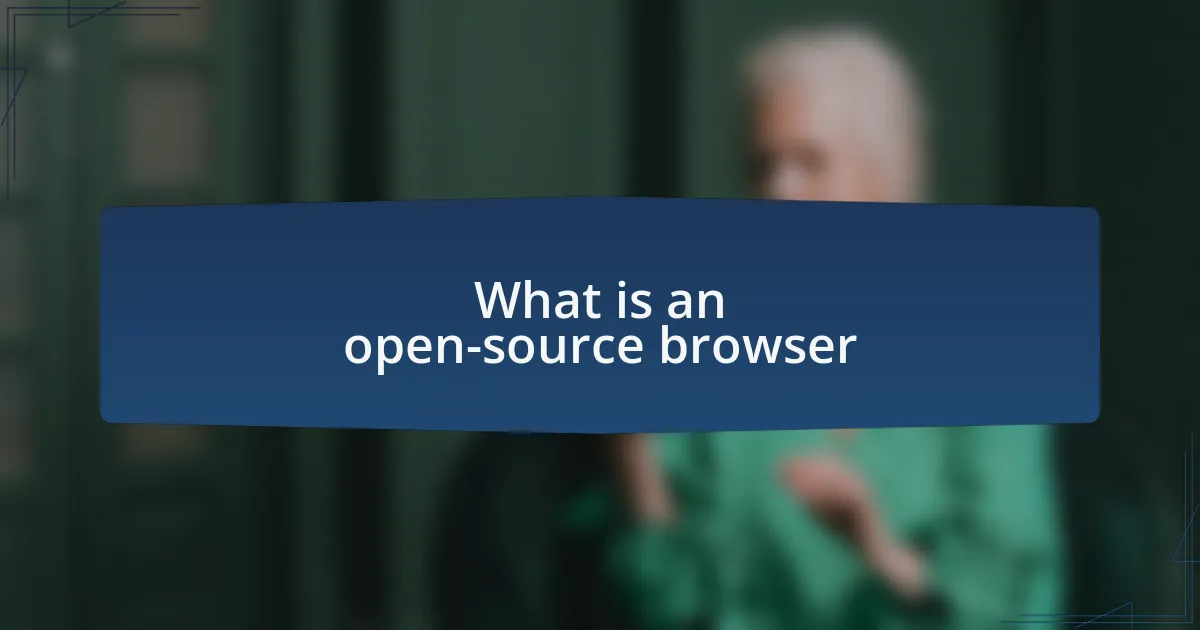
What is an open-source browser
An open-source browser is a web browser whose source code is made publicly available for anyone to view, modify, or distribute. This means developers and users alike can contribute to its improvement, fostering a more collaborative and transparent environment. I’ve often found that this openness cultivates a sense of community among users who are passionate about customization and enhancing their online experience.
What truly captivates me about open-source browsers is the commitment to user privacy and security. Unlike many commercial browsers, which can often prioritize profit over user experience, these alternatives place control back into the hands of the users. Have you ever felt uneasy knowing your browsing habits were being tracked? Open-source browsers allow for greater transparency in what happens to your data, enabling users to choose how they engage with the web.
Exploring an open-source browser can feel like delving into a vast toolbox where each tool offers unique functionalities shaped by community input. I remember the first time I experimented with such a browser, the excitement of discovering new features and extensions tailored to my specific needs was exhilarating. It’s not just about browsing the web; it’s about shaping your own digital journey.
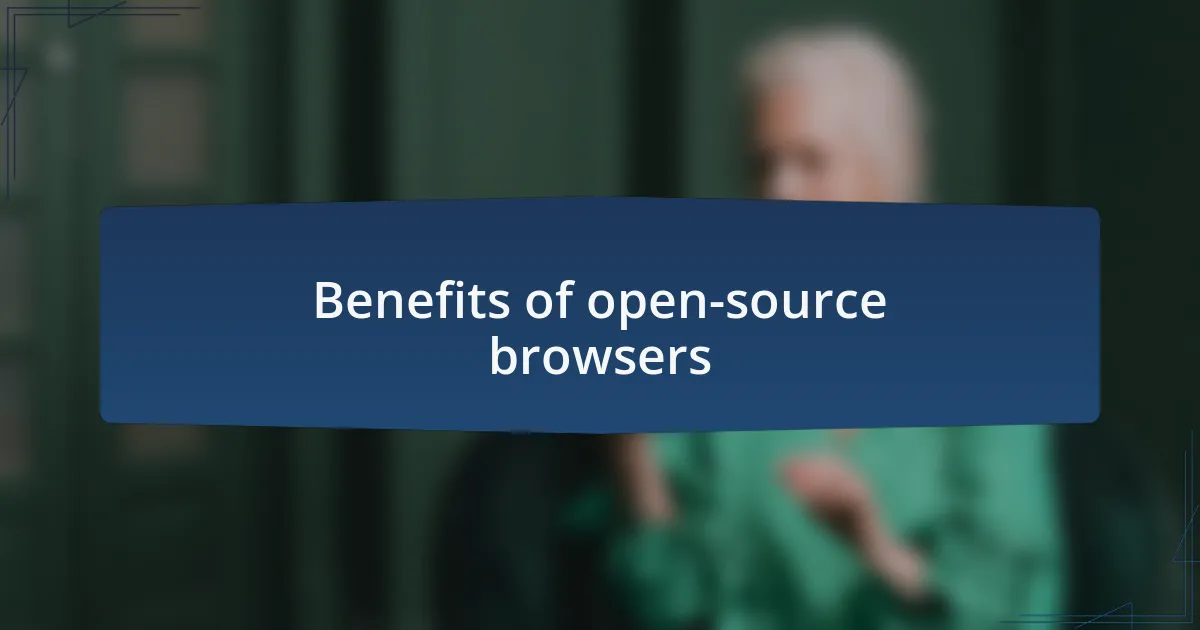
Benefits of open-source browsers
In my experience, one of the most remarkable benefits of open-source browsers is the speed at which they can adapt to user feedback. For instance, I vividly recall when a newly discovered security vulnerability was patched within days in an open-source project I was following. This responsiveness is rare in commercial browsers, where updates might take weeks or even months. Isn’t it reassuring to know that user concerns are prioritized?
Another significant advantage is the customization options available. I remember being able to tailor an open-source browser’s interface to suit my personal preferences—everything from the themes to the toolbar layout. This level of personalized control transformed my browsing experience into something uniquely mine. Can you imagine browsing with a setup that perfectly aligns with your workflow?
Moreover, open-source browsers often have an active community that contributes to their development. This community-driven approach fosters innovation and keeps the software fresh and relevant. I’ve participated in forums where users share extensions and tweaks that significantly enhance functionality. It feels empowering to be part of a collective striving for improvement. Who wouldn’t want to be involved in shaping the tools they use every day?
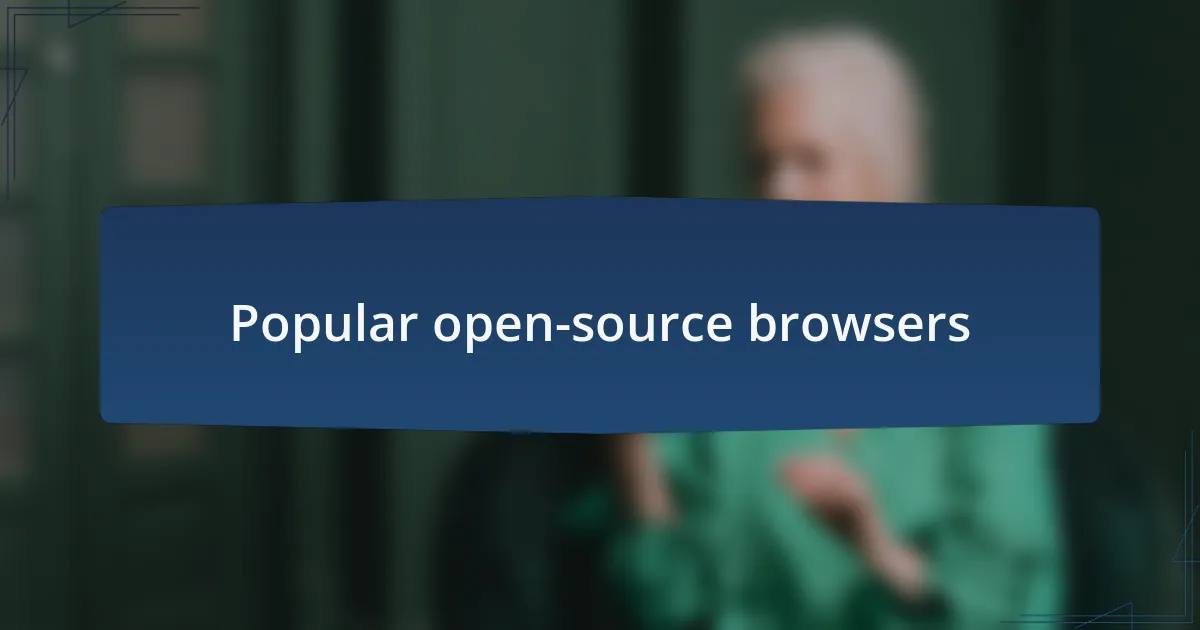
Popular open-source browsers
When it comes to popular open-source browsers, Firefox is often the first to come to mind. I remember switching to it years ago, drawn in by its commitment to privacy and user control. The flexibility it offers—from customizable plugins to various privacy settings—allowed me to create a browsing experience that felt secure and tailored to my needs. Have you ever explored its vast library of extensions? It’s like a treasure trove waiting to be uncovered.
Another noteworthy player is Chromium, the open-source foundation behind Google Chrome. What strikes me about Chromium is its remarkable performance speed combined with the ability to build upon it. I often find myself experimenting with different builds that enhance privacy features, all while enjoying the seamless browsing experience it provides. Does the prospect of a browser that can be modified to suit your security preferences appeal to you?
Then there’s Brave, a relative newcomer that has caught my attention. This browser goes a step beyond by integrating ad-blocking and tracking protection right out of the box. I remember trying it for the first time and feeling a rush of excitement to see how much faster my pages loaded without all the ads. Wouldn’t it be great to browse without distractions and feel more in control of what you see?
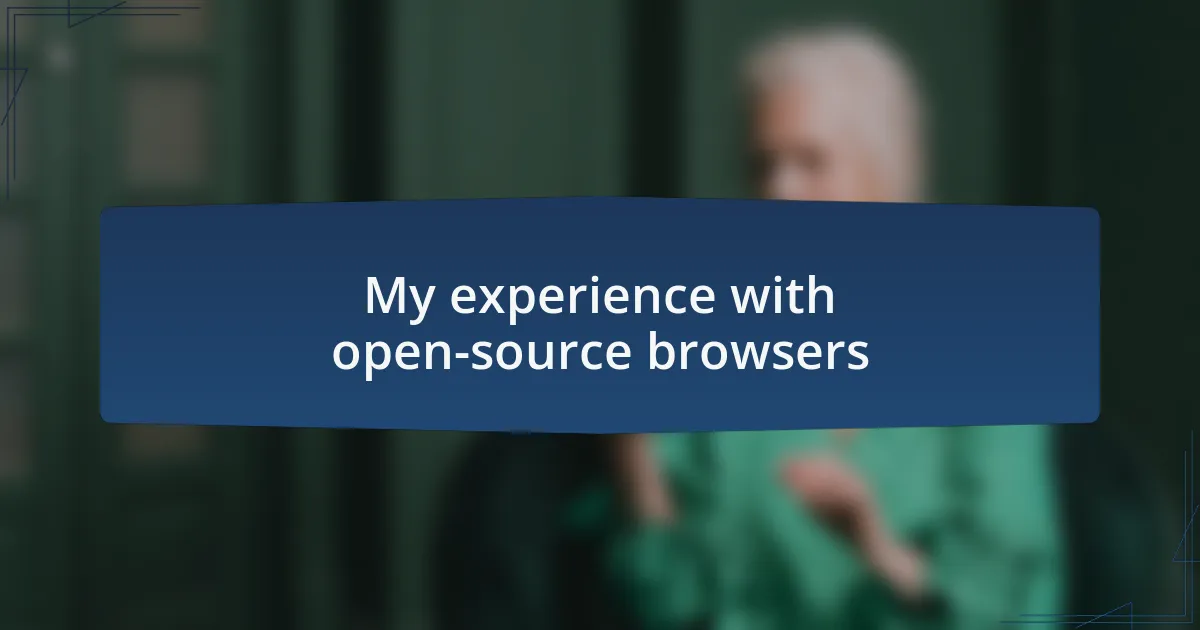
My experience with open-source browsers
My journey with open-source browsers has been quite transformative. I clearly remember the first time I switched to Firefox—it felt like walking into a world where I was in control. The moment I discovered the privacy settings, I felt a sense of relief, as if I had finally taken charge of my online presence instead of being a passive user. Have you ever felt that sense of empowerment when adjusting settings to fit your values?
Using Chromium was a different experience altogether. I’ll never forget the excitement of discovering how easily I could tweak it. One evening, I spent hours customizing it to block certain trackers—what a rewarding project! I realized I not only improved my browsing speed but also enhanced my overall internet experience. Have you ever had a moment where you realized your digital space could reflect your personal preferences?
Then there was Brave, which felt revolutionary when I tried it. I recall being pleasantly surprised at how quickly webpages loaded without all the advertising clutter. The sense of freedom I felt while browsing—uninterrupted and focused—was remarkable. It made me wonder how much more I could enjoy other online activities if distractions were minimized. Don’t you find it invigorating when technology works effortlessly to enhance your experience?
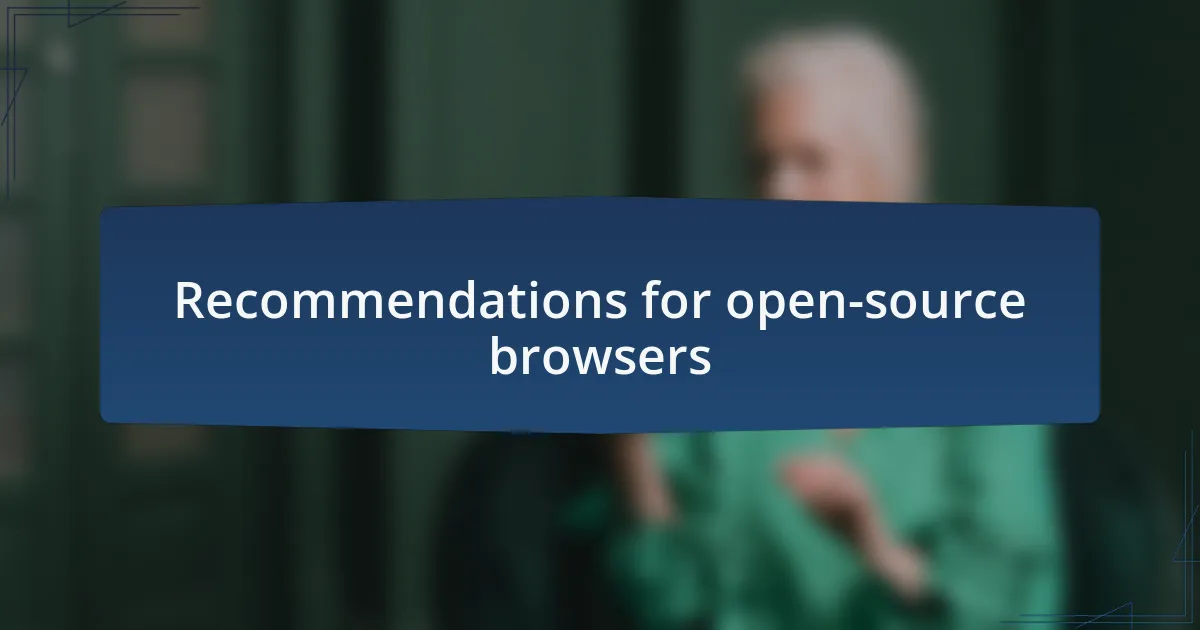
Recommendations for open-source browsers
When considering open-source browsers, I highly recommend giving Firefox a try. The sheer range of add-ons available can significantly enhance your experience; I once added a privacy extension that changed the way I felt about cookie tracking online. Have you ever discovered a simple tool that made a world of difference in your browsing habits?
Another solid option is Brave, especially if you’re looking to reduce ads and page load times. A couple of weeks ago, I noticed that browsing on Brave not only improved my speed but also gave me a sense of peace, knowing that my online privacy was a priority. Isn’t it refreshing when a browser aligns with your values?
If customization is what excites you, look no further than Chromium. I remember feeling like a kid in a candy store when I was first introduced to its settings. Tweaking the user interface to reflect my style was not just satisfying; it made me feel more connected to my digital environment. How often do we have the chance to make technology truly ours?